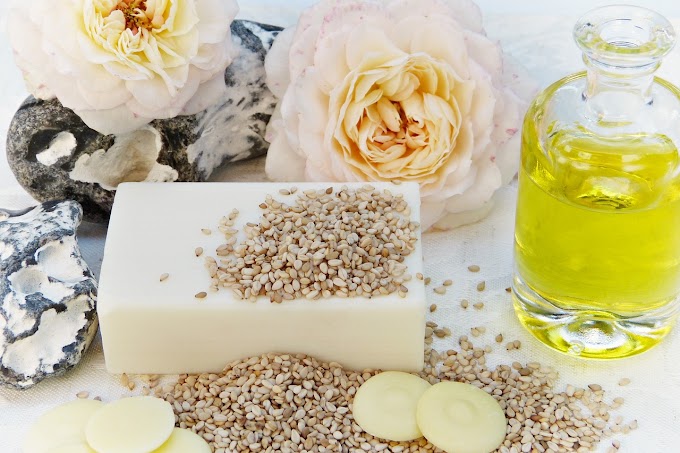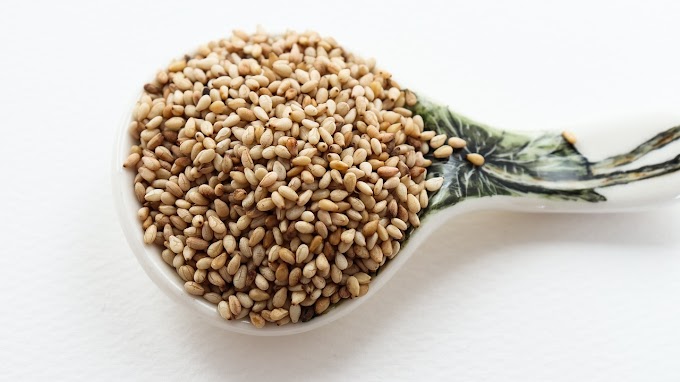Introduction
In the quest for healthy and luscious locks, many individuals are turning to time-tested remedies rooted in ancient wisdom. Ayurveda, the traditional Indian system of medicine, has been harnessing the power of herbs for centuries to promote overall well-being, including hair health. In this comprehensive guide, we will explore the miraculous world of Ayurvedic herbs for hair growth, shedding light on their benefits and how to incorporate them into your daily hair care routine.

Ayurveda and Hair Health
Ayurveda, which translates to "science of life," is a holistic approach to wellness that emphasizes the balance of mind, body, and spirit. According to Ayurvedic principles, an imbalance in the doshas—Vata, Pitta, and Kapha—can lead to various health issues, including hair problems. Incorporating Ayurvedic herbs into your hair care routine is believed to restore this balance, promoting optimal hair growth and vitality.Amla (Indian Gooseberry)
Amla, also known as Indian Gooseberry, is a powerhouse of nutrients essential for hair health. Rich in vitamin C and antioxidants, Amla strengthens hair follicles, prevents premature graying, and stimulates hair growth. Incorporating Amla into your hair care routine can be as simple as using Amla oil or consuming Amla supplements.Bhringraj (False Daisy)
Bhringraj, commonly referred to as False Daisy, is revered in Ayurveda for its hair-revitalizing properties. It nourishes the scalp, reduces hair fall, and promotes healthy hair growth. Bhringraj oil, when massaged into the scalp regularly, can enhance blood circulation, delivering vital nutrients to the hair follicles.
Brahmi (Bacopa Monnieri)
Brahmi, also known as Bacopa Monnieri, is renowned for its ability to enhance cognitive function, but its benefits extend to hair care as well. This herb nourishes the hair roots, strengthens hair strands, and minimizes hair loss. Incorporating Brahmi into your routine can be as simple as using Brahmi-infused hair oils or consuming Brahmi supplements.
Neem (Indian Lilac)
Neem, or Indian Lilac, is a potent herb known for its antibacterial and antifungal properties. In the context of hair care, Neem helps maintain a healthy scalp, preventing dandruff and other scalp infections. Neem oil, when applied topically, can soothe an irritated scalp, promoting optimal conditions for hair growth.Hibiscus
Hibiscus, often referred to as the "flower of hair care," is rich in vitamins and amino acids essential for strong and healthy hair. It nourishes the scalp, reduces hair fall, and adds a natural shine to the hair. Hibiscus can be incorporated into your hair care routine through homemade hair masks or by using Hibiscus-infused hair products.Shikakai
Shikakai, a natural cleanser derived from the Acacia concinna plant, has been a staple in Ayurvedic hair care for centuries. It cleanses the scalp without stripping it of natural oils, promoting a healthy balance. Shikakai powder can be used as a hair cleanser, and its regular application is known to strengthen hair roots and prevent hair breakage.
Methi (Fenugreek)
Methi, or Fenugreek, is a versatile herb with numerous benefits for hair health. It is rich in proteins and nicotinic acid, which strengthen hair follicles and promote hair growth. A Methi seed paste applied to the hair can improve texture, reduce hair fall, and add a natural sheen.

Ayurvedic Herbs into Your Hair Care Routine
Now that we've explored the benefits of key Ayurvedic herbs, let's discuss practical ways to incorporate them into your hair care routine:
Herbal Hair Oils: Choose Ayurvedic hair oils infused with Amla, Bhringraj, Brahmi, Neem, or a combination of these herbs. Regularly massage the oil into your scalp to nourish hair follicles and improve blood circulation.
Homemade Hair Masks: Create nourishing hair masks using Ayurvedic herbs like Hibiscus, Shikakai, and Methi. Mix these herbs with other natural ingredients like yogurt or coconut milk to create a potent hair treatment.
Ayurvedic Shampoos and Conditioners: Look for hair care products that incorporate Ayurvedic herbs. These formulations can provide a gentle yet effective cleansing experience while nourishing your hair.
Herbal Supplements: If you prefer an internal approach, consider incorporating Ayurvedic herb supplements into your diet. Consult with an Ayurvedic practitioner or healthcare professional to determine the right dosage for your specific needs.
Conclusion
Embracing the power of Ayurvedic herbs for hair growth is a holistic and time-tested approach to achieving and maintaining luscious locks. By incorporating these herbs into your hair care routine, you not only address external concerns but also promote overall well-being in alignment with Ayurvedic principles. Whether you choose to use herbal oils, make homemade masks, or opt for Ayurvedic hair care products, the key lies in consistency and a mindful approach to nurturing your hair with the gifts of nature.
Frequently Asked Questions (FAQs)
1. Are Ayurvedic herbs safe for all hair types?
Yes, Ayurvedic herbs are generally safe for all hair types. However, it's advisable to perform a patch test before using any new herb to ensure there are no allergic reactions. Consult with a healthcare professional or Ayurvedic practitioner if you have specific concerns or pre-existing conditions.
2. How often should I use Ayurvedic herbal oils for hair growth?
The frequency of use depends on your hair type and the specific herbs in the oil. In general, it's recommended to massage your scalp with Ayurvedic herbal oil at least once a week. Adjust the frequency based on your hair's response and individual needs.
3. Can Ayurvedic herbs prevent hair loss and promote regrowth?
Ayurvedic herbs are known for their holistic approach to hair health. While individual results may vary, many people experience reduced hair loss and improved regrowth with consistent use of Ayurvedic herbs. Patience and regularity are key to seeing positive outcomes.
4. Can pregnant women use Ayurvedic herbs for hair care?
Pregnant or breastfeeding women need to consult with a healthcare professional before using Ayurvedic herbs. While many herbs are safe, individual reactions can vary, and it's crucial to ensure the safety of both the mother and the baby.
5. How long does it take to see results with Ayurvedic herbs for hair growth?
Results vary from person to person. Some individuals may notice improvements in hair texture and reduced hair fall within a few weeks, while others may take a few months. Consistency in your hair care routine plays a significant role in achieving and maintaining positive results.
6. Are there any dietary recommendations to complement Ayurvedic hair care?
Ayurveda emphasizes the connection between diet and overall well-being. Including a balanced and nutritious diet with foods that support hair health, such as fruits, vegetables, and proteins, can complement the benefits of Ayurvedic herbs for optimal results.
7. Can I mix different Ayurvedic herbs together for a hair mask?
Yes, you can create custom hair masks by combining various Ayurvedic herbs. Experimenting with combinations like Amla and Brahmi or Hibiscus and Shikakai can offer a synergistic effect. However, be mindful of potential allergies and perform a patch test before applying the mixture to your entire scalp and hair.
8. Are there any side effects of using Ayurvedic herbs for hair care?
Ayurvedic herbs are generally safe when used as directed. However, it's crucial to be aware of potential allergies or adverse reactions. If you experience any unusual symptoms, discontinue use and consult with a healthcare professional or Ayurvedic practitioner.
9. Can Ayurvedic herbs be used by individuals with sensitive skin?
Ayurvedic herbs are often well-tolerated by individuals with sensitive skin. However, it's recommended to start with a small amount and observe how your skin reacts. If you notice any irritation, choose milder formulations or consult with a healthcare professional for personalized advice.
10. Are there specific Ayurvedic herbs recommended for addressing dandruff?
Yes, herbs like Neem, Brahmi, and Amla are known for their anti-dandruff properties. Using Ayurvedic shampoos or hair masks containing these herbs can help maintain a healthy scalp and reduce dandruff. Consistent use is key to achieving and sustaining positive results.







